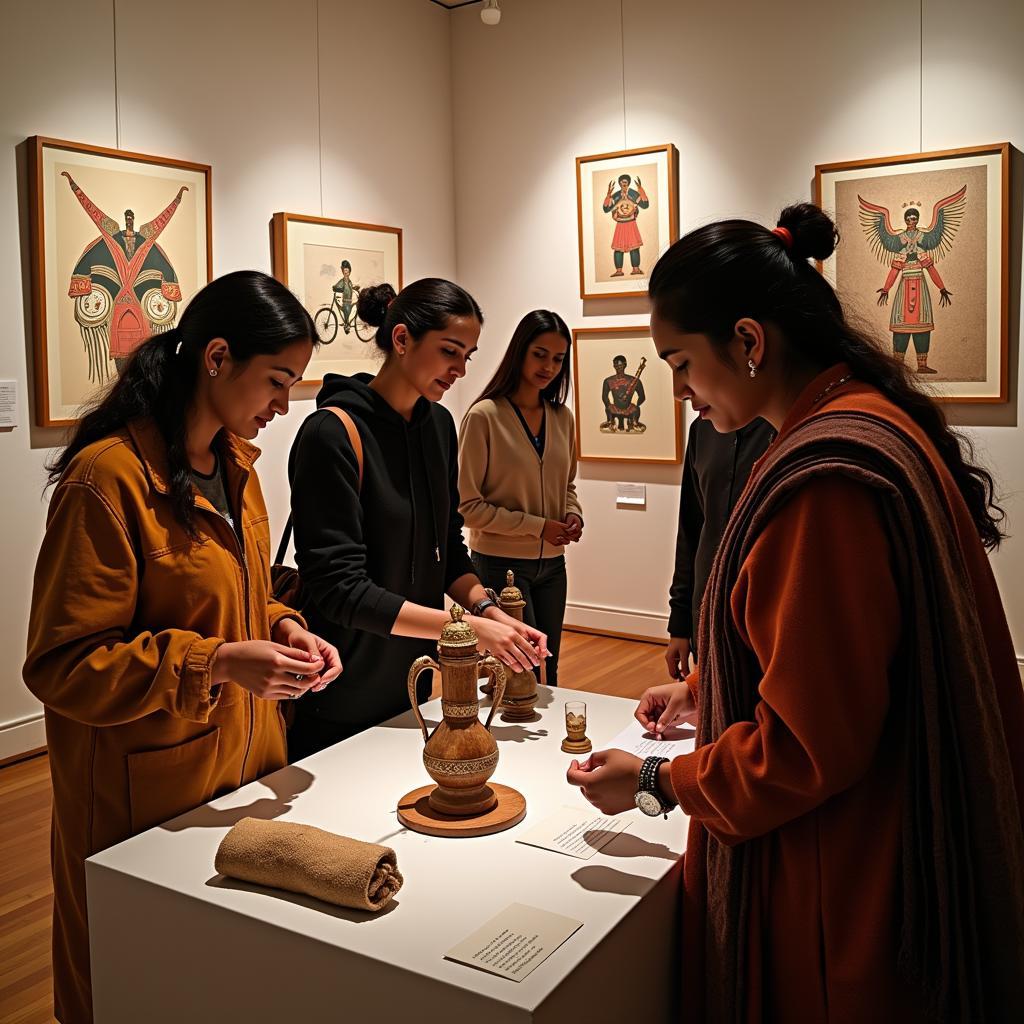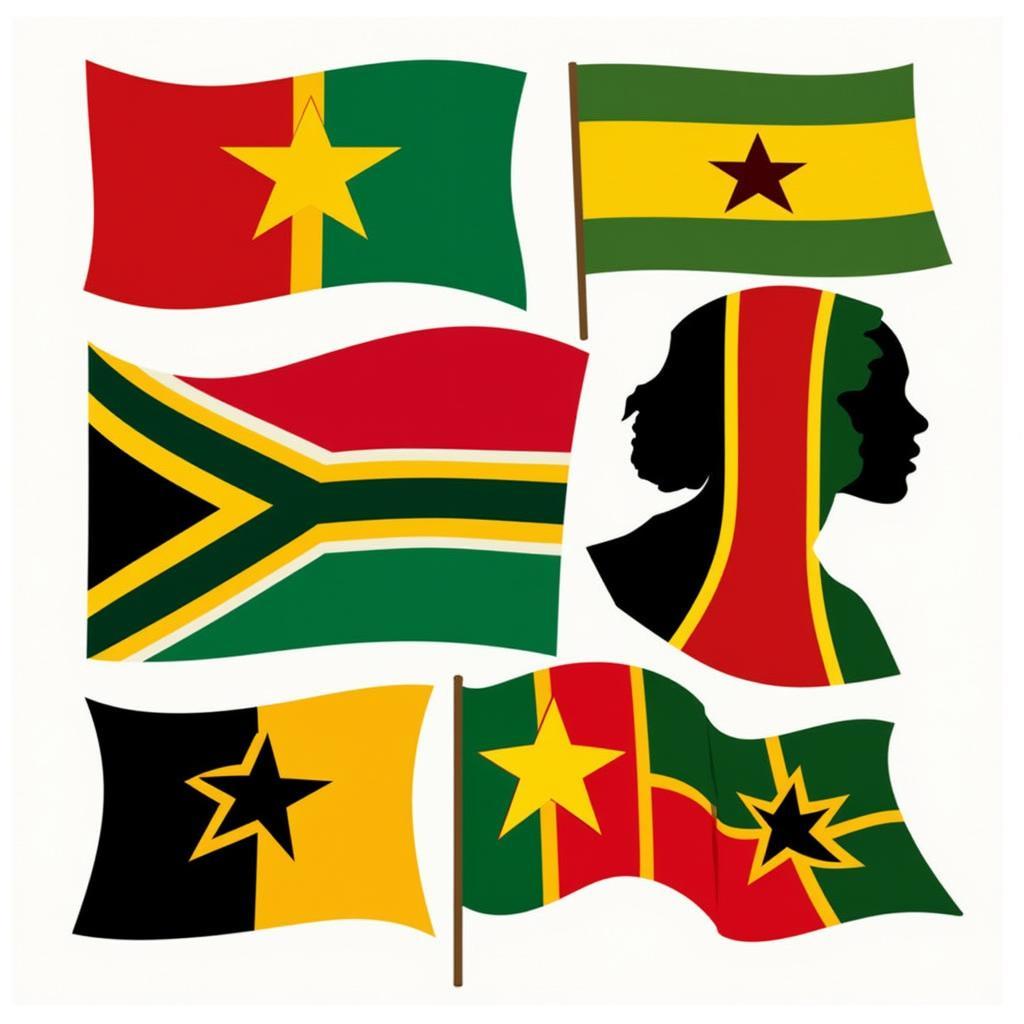Exploring the Rich Tapestry of African Diaspora Languages
African Diaspora Languages represent a fascinating and complex linguistic landscape, shaped by the forced migration of Africans across the globe. These languages bear the indelible mark of their African origins while simultaneously reflecting the influence of the new environments in which they developed. This article delves into the origins, evolution, and cultural significance of these languages, showcasing their resilience and diversity.
The African diaspora, a direct consequence of the transatlantic slave trade, dispersed millions of Africans across the Americas and the Caribbean. This forced migration resulted in the creation of new languages, often born out of necessity and survival. These languages, known as African diaspora languages, are a testament to the strength and adaptability of African cultures. They serve as a powerful reminder of the historical trauma of slavery while also celebrating the enduring legacy of African linguistic heritage.
Origins and Development of African Diaspora Languages
The transatlantic slave trade dramatically impacted the linguistic landscape of the Americas. Enslaved Africans, often from different ethnic and linguistic groups, were forced to communicate with each other and their captors. This led to the development of pidgins and creoles. Pidgins are simplified languages that arise from contact between speakers of different languages, while creoles develop from pidgins when they become the first language of a community.
A prime example is the development of languages like Gullah Geechee in the southeastern United States. This creole language retains elements of West African languages while incorporating English influences. Similarly, Haitian Creole, spoken in Haiti, draws heavily from French and West African languages. These languages are not merely dialects but complex grammatical systems with unique vocabularies and pronunciations.
The formation of African American Vernacular English showcases another aspect of language evolution within the diaspora. This dialect, while sharing similarities with standard American English, possesses unique grammatical features and pronunciation patterns that are rooted in the African linguistic heritage of its speakers. You can learn more about these distinct characteristics in our article on African American Vernacular English grammatical features.
Cultural Significance and Preservation Efforts
African diaspora languages are more than just communication tools; they are vital carriers of culture, history, and identity. They embody the resilience of African traditions and serve as a link to ancestral roots. Through storytelling, music, and everyday conversation, these languages transmit cultural values, beliefs, and historical memories across generations.
Numerous organizations and communities are actively engaged in preserving and promoting these languages. Efforts include language classes, documentation projects, and cultural festivals. These initiatives aim to revitalize these languages and ensure their survival for future generations. The recognition and appreciation of African diaspora languages contribute to a more inclusive understanding of global linguistic diversity. For those interested in exploring the connections between African and Indian ancestry, our article on African ancestry Indian provides further insights.
The Future of African Diaspora Languages in a Globalized World
In an increasingly interconnected world, the future of African diaspora languages faces both challenges and opportunities. Globalization can lead to language shift, where speakers adopt more dominant languages, potentially endangering the survival of less widely spoken languages. However, globalization also presents opportunities for increased visibility and awareness through digital platforms and online communities. Resources like the article about African Indian Mix highlight the beauty and complexity of cultural interactions within the diaspora.
Preservation efforts must adapt to the digital age, utilizing technology to document, teach, and promote these languages. The continued engagement of younger generations is crucial for the long-term survival of these linguistic treasures. By fostering a sense of pride and ownership, communities can ensure that African diaspora languages continue to thrive and enrich the global linguistic tapestry. You might find information about African escort service in Bangalore helpful in understanding some aspects of the diaspora experience. Furthermore, we have an article related to African for sex Bangalore.
Conclusion
African diaspora languages stand as a powerful testament to the resilience, creativity, and cultural richness of the African diaspora. These languages are not remnants of the past but living, evolving entities that continue to shape the identities and experiences of communities across the globe. By understanding and appreciating the history, diversity, and significance of these languages, we can contribute to their preservation and celebrate the enduring legacy of African linguistic heritage.
FAQ
- What are the most common African diaspora languages?
- How are these languages different from African languages spoken on the continent?
- What are the challenges facing the preservation of these languages?
- How can I learn more about a specific African diaspora language?
- What resources are available for learning these languages?
- How do African diaspora languages contribute to cultural identity?
- What is the relationship between language and history in the African diaspora?
Further Exploration
- Explore more about the topic of African for sex Bangalore.
- Discover additional resources on African escort service in Bangalore.
Call to Action
For any inquiries or assistance, please contact us via phone at +255768904061, email at kaka.mag@gmail.com, or visit our office in Mbarali DC Mawindi, Kangaga, Tanzania. Our customer service team is available 24/7.


